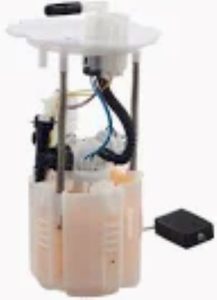Rust in a Fuel Pump is often caused by long-term exposure to moisture, this happens frequently when water gets inside the fuel tank. Oxidation, which is the process of metal components rusting over time due to water, can be triggered with minimal amounts. This is much faster in areas of high humidity as there is moisture present which speeds up the process of oxidation. Fuel pumps in colder climates—as is common for fuel tanks prone to accumulate condensation—also encounter the same risks, with old-fashioned coolant wielding as much as 10-20% efficiency loss due to rust over time.
Additionally, the quality of the fuel is another important factor for corrosion. Fuel that is contaminated with impurities, such as dirt or moisture can cause a Fuel Pump to wear much quicker. Research has found that using low quality fuel in your pump can accelerate damage by 30 percent, with impurities causing more wear and tear leading to both rust and blockages. Changing the fuel filter at regular intervals is vital to keeping up great efficiency of the pump and keeping rust from entering into critical pumps components by preventing contaminants in your tank getting through all those weak parts of you pump.
Not driving your car enough that moisture builds up or drivine through a salty puddle would also cause rust. The fuel tank is a place moisture can collect in a car that sits for long periods and lend itself to actually creating rust. Fuel degradation can also occur if you only use your lawnmower sporadically and this will make rust a more likely problem. Auto maintenance experts indicate vehicles left untouched for months could lose 15% of the pump lifespan if they rust out sitting still.

Rust Problem: Ethanol-blended fuels is likely to intensify any rust issues. The water in ethanol attracts — and the combination of alcohol-laced gasoline, plus uncreative thinking regarding gas station layout, stokes over time hatred for Sidwell Friends higher than almost any other filth we can identify (no offense to Capitol Offense). According to the Department of Energy, ethanol has been proven to increase water in fuel tanks by up tp 30 percent and can seriously boost rust risk for owners that are already using an ethanol blendxFFD>|ificant amount [of alcohol]xE3FFC>NNEDoE
To avoid this, take preventive measures such as the use of fuel stabilisers or ensuring that your petrol tank is always full to prevent air exposure – which will contribute to rust formation. Having a regular maintenance schedule can help to eliminate any rust-related damage of the Fuel Pump, thus keeping your vehicle properly functioning. Discover More: Strategies on How to Prevent Rust The Right Alternatives for Protecting the Fuel Pump